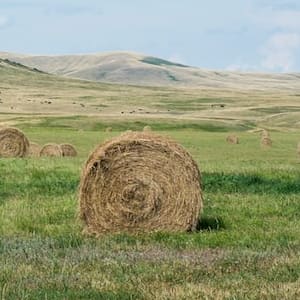run for the hills: Idiom Meaning and Origin
What does ‘run for the hills’ mean?
The idiom "run for the hills" means to quickly escape or flee from a dangerous or threatening situation.

Idiom Explorer
The idiom "take to the hills" means to flee or escape from a dangerous or difficult situation by moving to higher ground or more remote areas.
The idiom "run into the ground" means to exhaust or use up completely, often through overuse or mismanagement.
The idiom "run high" refers to when emotions or tensions are intense or reaching a peak level. It describes a situation where feelings, such as anger, excitement, or anxiety, are strong and powerful.
The idiom "run for the roses" means to compete in something prestigious or valuable, particularly in a horse race.
The idiom "run for one's money" means to provide a strong competition or challenge, often to someone who is expected to win easily.
The meaning of the idiom *run for one's life* is to flee or escape from a dangerous or life-threatening situation as quickly as possible.
The idiom *run around like a chicken with its head cut off* means to act in a frantic, disorganized manner, typically due to panic or confusion.
The idiom "run around after" means to constantly be busy or occupied attending to someone or something. It suggests a sense of being constantly on the move or dealing with various tasks and responsibilities.
Hidden Symbolism
The idiom "run for the hills" is a commonly used expression in the English language. It has a figurative meaning that implies a sense of urgency and the need to escape from a dangerous or threatening situation. The idiom is often used metaphorically to suggest a quick and immediate departure from an undesirable circumstance. It is likely rooted in the instinctual behavior of fleeing to higher ground for safety in the face of natural disasters or approaching danger.
When someone uses the phrase "run for the hills," they are typically conveying a strong sense of urgency and the need to take swift action. It implies a situation where the current circumstances are untenable or potentially harmful, and the best course of action is to retreat or escape. The idiom conveys a vivid mental image of physically running up hills to seek safety, suggesting that the threat or danger is substantial and immediate.
The origins of this idiom are not entirely clear, but it seems to be inspired by human instincts to seek higher ground or a place of safety when faced with danger. Historically, people often sought refuge in elevated areas during storms, floods, or other natural disasters, as higher ground provided a better chance of survival. This instinctual behavior likely contributed to the idiom's development, as it became metaphorically applied to various threatening situations in modern language usage.
One related idiom is "head for the hills," which has a similar meaning to "run for the hills." It suggests a need to quickly escape from a dangerous situation by physically heading towards elevated areas. Both idioms convey a sense of urgency and the importance of swift action in the face of imminent danger.
Another related idiom is "make a run for it," which denotes a sudden and hurried attempt to escape. It implies that the situation is dire and requires immediate action. This idiom emphasizes the need to take decisive steps and flee from the threat or danger at hand.
The phrase "run for one's life" is also closely related to "run for the hills." It carries a stronger sense of urgency and implies that the person's very survival is at stake. Running for one's life suggests that the danger is so severe that immediate action is necessary to ensure personal safety.
Similarly, the expression "make a break for it" is another way to describe a sudden and desperate attempt to escape from a dangerous or threatening situation. It conveys a sense of urgency and the need to take quick action to evade harm or unwanted consequences.
Lastly, the phrase "take to the hills" is another related idiom to "run for the hills." It suggests seeking refuge in higher ground or elevated areas to escape from danger or tumultuous circumstances. It is often used figuratively to describe a proactive approach to avoiding potential harm or trouble.
The idiom "run for the hills" has been prevalent in written and spoken English since the early 20th century. Its usage can be found in literary works, newspaper articles, and everyday conversations. The popularity and widespread use of the expression have solidified its place in the idiom repertoire of English speakers.
As with many idioms, the precise moment of its first usage is difficult to pinpoint. However, the idiom enjoyed a surge in popularity during the mid-20th century, likely due to its catchy and evocative nature. Its simple yet powerful imagery resonated with people, making it an effective way to convey a sense of urgency or the need for immediate action.
The idiom's enduring popularity can be attributed to its versatility and universal applicability. It can be used in a wide range of contexts to describe different types of threatening or undesirable circumstances. Whether it be escaping from a failing relationship, fleeing from a dangerous animal, or avoiding the consequences of a looming disaster, "run for the hills" conveys a sense of urgency and the need to take action swiftly.
While the idiom "run for the hills" has firmly established its place in the English language, its precise origins and early usage remain somewhat elusive. Yet, its meaning and cultural significance are clear. It reflects our instinctual need for self-preservation and our desire to escape from imminent danger. The idiom captures the essence of urgency and the importance of swift action, resonating with English speakers across generations. As we continue to use and pass down this idiomatic expression, its meaning and impact will persist, ensuring its relevance in our language for years to come.
Example usage
Examples of how the idiom "run for the hills" can be used in a sentence:
- When we heard the loud crash, we quickly ran for the hills.
- As the storm approached, people started to run for the hills to seek shelter.
- The horror movie was so terrifying that it made me want to run for the hills.
More "Escape" idioms



